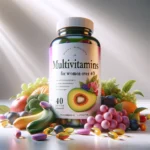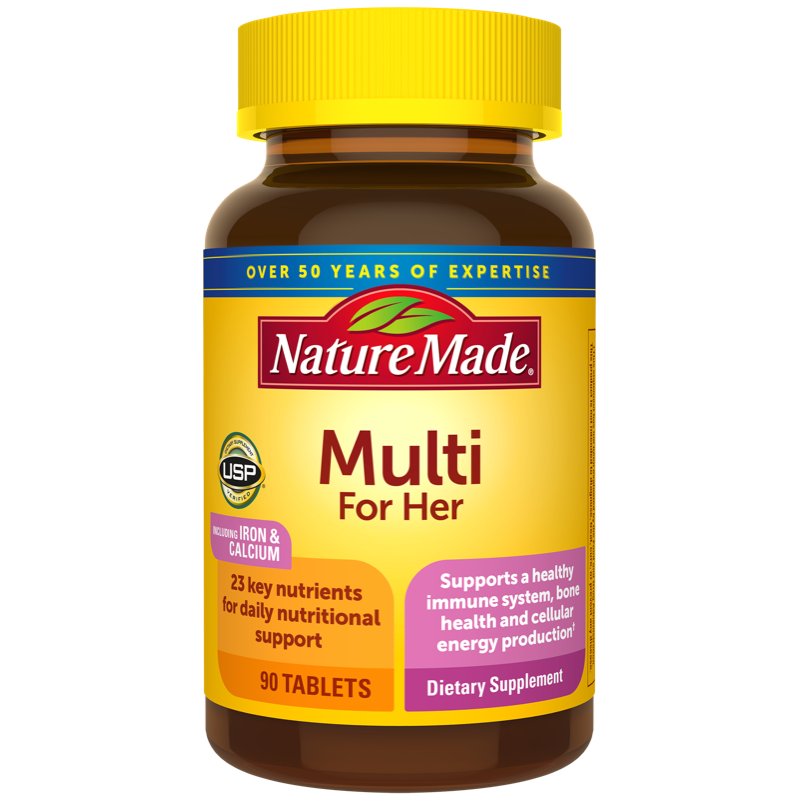

When women age, their bodies experience a range of modifications that affect their nutritional needs. Women over the age of 40 must prioritize their health and a multivitamin formulated to cover their nutritional gaps may help. Read this complete guide to multivitamins for women over the age of 40 to determine why multivitamins are essential, what to search for in the optimal supplement for your health, and other resources to better your general health. Nutritional requirements for women aged 40 and more
Additionally, women aged 40 and above grapple with hormonal changes, reduced bone density, and greater disease susceptibility. since their metabolism becomes sluggish and the body is unable to absorb vitamins as effective, nutritional insufficiency is exacerbated and it is critically important. A balance diet is necessary, but taking multivitamins is nonetheless necessary since even health-conscious eaters cannot be sure that they are getting the correct amounts. Why multivitamin is required
A multivitamin is a supplement that includes vitamins, minerals, and other nutrients. Multivitamins are frequently used to ensure that your body receives all of the necessary nutrients.
Women over 40 need multivitamins to:
- strengthen their bones
- increase energy levels
- strengthen their immune systems
- maintain their heart’s health
- maintain their hair and skin health
Key nutrients for women over 40 in multivitamins
- Vitamin D:
Maintains bone health and aids calcium absorption, thus lowering the risk of osteoporosis. Sources include dairy products, leafy greens, fortified foods, and sunlight. Magnesium: Maintains muscle and nerve function, controls blood sugar, and sustains bone. Sources include nuts, seeds, whole grains, and green vegetables.
- Vitamin C and E:
They are antioxidants that protect cells, maintain skins, and enhance immunity. Sources include citrus, berries, nuts. Iron: It forms red blood cells, hence beneficial for women with heavy menstrual cycles. Sources include meet, beans, lentils, and fortified cereals.
- Omega-3 Fatty Acids:
They protect your heart, reduce inflammation, and nourish your brain. Sources include fatty fish, flaxseeds, chia seeds, and walnuts.
- Vitamin B12 and B6:
They maintain energy metabolism, red blood cells, and neurological activity. Sources include meet, fish, poultry, eggs, and fortified cereals.
Ultimately, be mindful of the type of multivitamins that suit your specific needs.
Allergens and Additives
Look out for potential allergens and avoid unnecessary additives such as artificial coloring, flavoring, or preservatives.
Reputable Brand
Select a reputable brand that has good reviews and a history of producing quality products. How to Take Multivitamins To make the most of your multivitamin, consider the following:
Take with Food
Consume with a meal to improve absorption and reduce the risk of stomach issues.
Regular
Take at the same time every day to ensure consistency.
Multivitamins are meant for consumption in addition to a balanced diet, not in place of it. Consume a diet rich in fruits, vegetables, whole grains, lean proteins, and healthy fats.
Doctor’s Advice
Consult with your doctor before taking any new supplements, particularly if you have medical conditions or are taking medication. Possible Side Effects and Tracking Just like with medications, there are several potential adverse side effects with consuming high levels of these multivitamins:
Overdosing
Overdosing on multivitamins can be toxic since your body stores fat-soluble vitamins like A, D, E, and K.
Interaction with Medication
Some vitamins and minerals can interfere with your medication or render them ineffective.
Digestive Concerns
You may experience nausea, constipation, or even diarrhea.
Lifestyle Tips for Women Over 40
In addition to taking your multivitamin supplements, follow these simple lifestyle tips to improve your overall health:
Regular Exercise
Engage in 150 minutes of moderate-intensity aerobics per week, which includes engaging in strength training activities to maintain muscle mass and bone strength.
Well-rounded diet
A diet rich in nutrient-dense foods will help you meet your nutrient requirements more effectively, ensuring that you get an ample amount of vitamins and minerals.
Water
Drink enough water to facilitate your metabolism and prevent dehydration.
Stress management
Practice stress management techniques such as yoga, meditation, or deep breathing exercises.
Regular check-ups
Regularly monitor your health by visiting your general practitioner to respond to any health concerns.
Conclusion
A multivitamin is a worthwhile investment for women over 40. By understanding the unique nutritional needs of your changing body and selecting the right supplement, you can help yourself fuel those changes and enjoy optimal health. Remember that a multivitamin is a small but essential part of your overall well-being, which includes a healthy diet, exercise, and other lifestyle factors. Stay well, healthy, and confident in your age.
